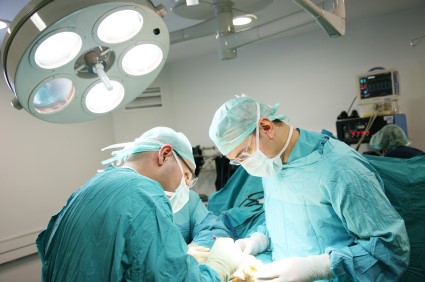Items filtered by date: November 2015
Common Foot Changes to Women During Pregnancy
 Foot changes during pregnancy are very common, but some women do not understand why such changes occur. Size increase, arch flattening, and instability in the feet or ankles are all a result of weight gain and hormonal shifts. Normal pregnancy weight gain can change the way a woman walks, leading to instability, and fluid build-up in the lower extremities can cause the feet to grow in size. To manage these changes, compression stockings, regular walking and low-impact exercises can be used effectively.
Foot changes during pregnancy are very common, but some women do not understand why such changes occur. Size increase, arch flattening, and instability in the feet or ankles are all a result of weight gain and hormonal shifts. Normal pregnancy weight gain can change the way a woman walks, leading to instability, and fluid build-up in the lower extremities can cause the feet to grow in size. To manage these changes, compression stockings, regular walking and low-impact exercises can be used effectively.
Pregnant women are susceptible to aching and swollen feet and should be treated with care. For more information about other cures for swollen feet during pregnancy, speak to Dr. Michael E. Newman of Pennsylvania. Our doctorwill assist you with all of your foot and ankle concerns and answer any of your related questions.
What foot problems can arise during pregnancy?
One problem that can occur is over-pronation, which occurs when the arch of the foot flattens and tends to roll inward. This can cause pain and discomfort in your heels while you’re walking or even just standing up, trying to support your baby.
Another problem is edema, or swelling in the extremities. This often affects the feet during pregnancy, but tends to occur in the later stages.
How can I keep my feet healthy during pregnancy?
- Wearing orthotics can provide extra support for the feet and help distribute weight evenly
- Minimize the amount of time spent walking barefoot
- Wear shoes with good arch support
- Wear shoes that allow for good circulation to the feet
- Elevate feet if you experience swelling
- Massage your feet
- Get regular, light exercise, such as walking, to promote blood circulation to the feet
If you have any questions please contact our offices located in Plymouth Meeting and Ambler, PA. We offer the newest diagnostic and treatment technologies for all your foot and ankle needs.
Risk Factors that Increase Likelihood of Plantar Fasciitis
 While plantar fasciitis is a common condition that does not discriminate, there are certain factors that can make some people more susceptible. Those over 40 years old, are often on your feet at work, have gained weight or have lost calf muscle flexibility, may find that they are more likely to have symptoms of the condition. Although symptoms include pain when you first wake up, stand for a long time, or walk without foot supports, there are treatments available. By ensuring you have the proper foot support and regularly ice your feet, you can help reduce and prevent further inflammation.
While plantar fasciitis is a common condition that does not discriminate, there are certain factors that can make some people more susceptible. Those over 40 years old, are often on your feet at work, have gained weight or have lost calf muscle flexibility, may find that they are more likely to have symptoms of the condition. Although symptoms include pain when you first wake up, stand for a long time, or walk without foot supports, there are treatments available. By ensuring you have the proper foot support and regularly ice your feet, you can help reduce and prevent further inflammation.
Plantar fasciitis can be very painful and inconvenient. If you are experiencing heel pain or symptoms of plantar fasciitis, visit Dr. Michael E. Newman of Pennsylvania. Our doctor can treat your heel pain as well as any other foot or ankle condition.
What is Plantar Fasciitis?
Plantar fasciitis is the inflammation of a the thick band of tissue that runs along the bottom of your foot, known as the plantar fascia, and causes mild to severe heel pain.
What Causes Plantar Fasciitis?
· Excessive running
· Non-supportive shoes
· Overpronation
· Repeated stretching and tearing of the plantar fascia
How Can It Be Treated?
· Conservative measures – anti-inflammatories, ice packs, stretching exercises, physical therapy, orthotic devices
· Shockwave therapy – sound waves are sent to the affected area to facilitate healing and are usually used for chronic cases of plantar fasciitis
· Surgery – usually only used as a last resort when all else fails. The plantar fascia can be surgically detached from the heel
While very treatable, plantar fasciitis is definitely not something that should be ignored. Especially in severe cases, speaking to your doctor right away is highly recommended to avoid complications and severe heel pain. Your podiatrist can work with you to provide the appropriate treatment options tailored to your condition.
If you have any questions please contact our offices located in Plymouth Meeting and Ambler, PA. We offer the newest diagnostic and treatment technologies for all your foot and ankle needs.
New Surgical Device Means Shorter Recovery Time for Patients
 A new surgical device known as the HammerLock 2 is being used to treat hammertoes effectively and without infection. The device is made with nitinol, is inserted into the bone where it is clipped back causing the material to expand and straighten the toe. This new method allows patients to move their toes quicker where the traditional method can cause the toes to become swollen or infected.
A new surgical device known as the HammerLock 2 is being used to treat hammertoes effectively and without infection. The device is made with nitinol, is inserted into the bone where it is clipped back causing the material to expand and straighten the toe. This new method allows patients to move their toes quicker where the traditional method can cause the toes to become swollen or infected.
Hammertoes can be a painful condition to live with. If you are suffering from hammertoes, contact Dr. Michael E. Newman of Pennsylvania. Our doctor will treat your foot and ankle needs.
Hammertoe
Hammertoe is a foot deformity that affects the joints of the second, third, fourth, or fifth toes of your feet. It is a painful foot condition in which these toes curl and arch up, which can often lead to pain when wearing footwear.
Symptoms
- Pain in the affected toes
- Development of corns or calluses due to friction
- Inflammation
- Redness
- Contracture of the toes
Causes
- Genetics – people who are genetically predisposed to hammertoe are often more susceptible
- Arthritis – because arthritis affects the joints in your toes, further deformities stemming from arthritis can occur
- Trauma – direct trauma to the toes could potentially lead to hammertoe
- Ill-fitting shoes – undue pressure on the front of the toes from ill-fitting shoes can potentially lead to the development of hammertoe
Treatment
- Orthotics – custom made inserts can be used to help relieve pressure placed on the toes and therefore relieve some of the pain associated with it
- Medications – oral medications such as anti-inflammatories or NSAIDs could be used to treat the pain and inflammation hammertoes causes. Injections of corticosteroids are also sometimes used
- Surgery – in more severe cases where the hammertoes have become more rigid, foot surgery is a potential option
If you have any questions please contact our offices located in Plymouth Meeting and Ambler, PA. We offer the newest diagnostic and treatment technologies for all your foot and ankle needs.
UFC Fighter Suffers Broken Toe and Broken Foot
 A month before her UFC debut fight, Jessica Aguilar says she suffered a broken toe and broken foot, both on her right foot. It turned out to be a lose-lose situation for Aguilar during her fight with Claudia Gadelha who ended her 10-fight win streak. Aguilar told FOX sports that she “learned from her decision and won’t be doing that again” in regards to trying to fight with a severely debilitated right foot. Aguilar has not called for a return-date and is taking her foot injury much more serious now.
A month before her UFC debut fight, Jessica Aguilar says she suffered a broken toe and broken foot, both on her right foot. It turned out to be a lose-lose situation for Aguilar during her fight with Claudia Gadelha who ended her 10-fight win streak. Aguilar told FOX sports that she “learned from her decision and won’t be doing that again” in regards to trying to fight with a severely debilitated right foot. Aguilar has not called for a return-date and is taking her foot injury much more serious now.
A broken toe can be very painful and lead to complications if not properly fixed. If you have any concerns contact podiatrists Dr. Michael Newman and Dr. Denise Kohler of The Healing Center. Our doctors will treat your foot and ankle needs.
What to Know About a Broken Toe
Although most people try to avoid foot trauma such as banging, stubbing, or dropping heavy objects on their feet, the unfortunate fact is that it is a common occurrence. Given the fact that toes are positioned in front of the feet, they typically sustain the brunt of such trauma. When trauma occurs to a toe, the result can be a painful break (fracture).
Symptoms of a Broken Toe
- throbbing pain
- swelling
- bruising on the skin and toenail
- the inability to move the toe
- toe appears crooked or disfigured
- tingling or numbness in the toe
Generally, it is best to stay off of the injured toe with the affected foot elevated.
Severe toe fractures may be treated with a splint, cast, and in some cases, minor surgery. Due to its position and the pressure it endures with daily activity, future complications can occur if the big toe is not properly treated.
If you have any concerns please feel free to contact our offices located in Plymouth Meeting and Ambler, PA. We offer the newest diagnostic tools and technology to treat your foot and ankle needs.
Tennessee Titans Chance Warmack Suffers from Ingrown Toenail Pain
 Chance Warmack of the Tennessee Titans and his big toes are feeling better prepared for their next game since having an ingrown toenail removed. During a preseason game against the St. Louis Rams, Warmack played through the pain and immediately went to see the doctor the next day to remedy the situation. The doctor removed the ingrown nail from both big toes with Warmack describing it as “toe meat.” Since then the guard has started to take better care of his feet and toenails stating, “I just have to soak it and take care of it... When I am not practicing it hurts.”
Chance Warmack of the Tennessee Titans and his big toes are feeling better prepared for their next game since having an ingrown toenail removed. During a preseason game against the St. Louis Rams, Warmack played through the pain and immediately went to see the doctor the next day to remedy the situation. The doctor removed the ingrown nail from both big toes with Warmack describing it as “toe meat.” Since then the guard has started to take better care of his feet and toenails stating, “I just have to soak it and take care of it... When I am not practicing it hurts.”
Ingrown toenails can become painful if they are not treated properly. To learn more, consult with Dr. Michael E. Newman and Dr. Denise Kohler of Pennsylvania. Our doctors will provide you with quality foot and ankle treatment.
Ingrown Toenails
Ingrown toenails occur when a toenail grows sideways into the bed of the nail, causing pain, swelling, and possibly infection.
Causes
- Bacterial infections
- Improper nail cutting such as cutting it too short or not straight across
- Trauma to the toe, such as stubbing, which causes the nail to grow back irregularly
- Ill-fitting shoes that bunch the toes too close together
- Genetic predisposition
Prevention
Because ingrown toenails are not something found outside of shoe-wearing cultures, going barefoot as often as possible will decrease the likeliness of developing ingrown toenails. Wearing proper fitting shoes and using proper cutting techniques will also help decrease your risk of developing ingrown toenails.
Treatment
Ingrown toenails are a very treatable foot condition. In minor cases, soaking the affected area in salt or antibacterial soaps will not only help with the ingrown nail itself, but also help prevent any infections from occurring. In more severe cases, surgery is an option. In either case, speaking to your podiatrist about this condition will help you get a better understanding of specific treatment options that are right for you.
If you have any questions, please feel free to contact our offices located in Plymouth Meeting and Ambler, PA. We offer the newest diagnostic and treatment technologies for all your foot and ankle needs.
